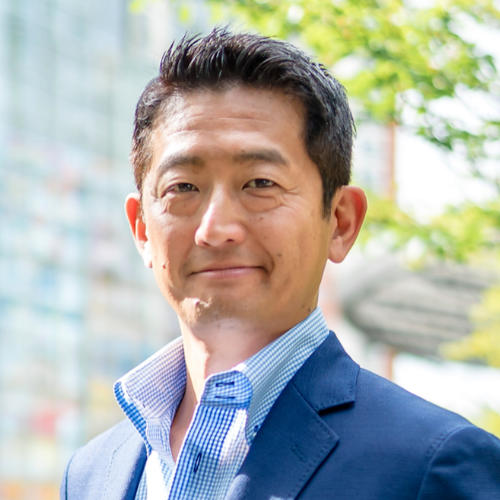Smart thinking
 Takuya Miyata, founder and general partner of Scrum Ventures, gives his tips on how Tokyo should adapt smart city practices to become a future financial hub
Takuya Miyata, founder and general partner of Scrum Ventures, gives his tips on how Tokyo should adapt smart city practices to become a future financial hub
Accept that making Tokyo ‘smart’ will be a patchwork process
“There are ‘greenfield’ projects happening throughout the world – where you build a 21st century city in a place where nothing exists. For example, Toyota is planning to construct ‘Woven City’, a smart city in Shizuoka, which will have a dual-layer structure – its logistics vehicles will travel in an underground layer below the city and be lifted up to ground level by conveyor belt. But Tokyo, with its existing 20th century infrastructure, is different – its underground subway lines make a dual-layer structure difficult. Tokyo is a ‘brownfield project’ and changing it into a smart city is a step-by-step process, not a fundamental transformation.”
Create a ‘Virtual Japan’ and a ‘Virtual Tokyo’
“When we talk about Tokyo as an international financial city – and Japan as a financial center – they need to be places that are super-easy to access virtually. These days it is easy to work across national borders. I envision ‘Virtual Japan’ as a way to become a citizen and create companies and businesses in Japan without having to physically live there. Finance is essentially information these days – there are few situations where bundles of bills are handed over – and financial centers will be increasingly virtual in the future.”
“Financial centers will be increasingly virtual in the future”
Bring Tokyo to the rest of Japan
“We are working with leaders in municipalities such as Mie Prefecture. They say that historically a number of local residents have had to leave for cities like Tokyo for better employment opportunities. But serious development of 5G infrastructure in rural areas would allow young people to stay their hometown but work virtually in urban cities.”
Embrace the level playing field
“The lack of physical limitations is a highly positive aspect of virtual spaces. There are hundreds of millions of people around the world who are disabled in some way, and virtual spaces can create a world in which these physical limitations are totally eliminated. Virtual spaces have tremendous potential in terms of their ability to transcend physical challenges such as discrimination, social fragmentation and disability.”
“Virtual spaces can create a world in which these physical limitations are totally eliminated”
Look to globally-minded young
“Japan has a high concentration of science and technology universities, and so that talent is extremely accessible. But we have communication problems. Even though there are fewer professionals in places like India and Southeast Asia, they’re easier to connect with because they speak English. Japanese creativity is incredible – in food, in manga and anime – and there is no problem with talent or ability, just with communication and culture. But recently Japanese people have really good global skill-sets and they give me much hope.”
Focus on human needs, not just technological needs
“We shouldn’t only talk about infrastructure, but also about whether Japan needs a smart city that allows individuals to realize their desires. We need to talk about what people are looking for in smart cities.”
Don’t neglect the non-virtual
“The pandemic has made us refocus and appreciate various aspects of life such as having fun, enjoying culture and beauty, and eating delicious food. Although we go on and on about the virtual, one of my conclusions is that Tokyo has so much to offer in the non-virtual forms of delicious foods and beautiful districts. Because business can happen without meeting in person, physical accumulation in a single place happens for other reasons, such as culture. The appeal of the city is actually something that attracts not only inbound tourists, but businesspeople as well.”